Contribution to Vietnam Net-Zero and NDC implementation plan: Advancing Standards for Passenger Cars under 9 seats, Motorcycles, and Mopeds

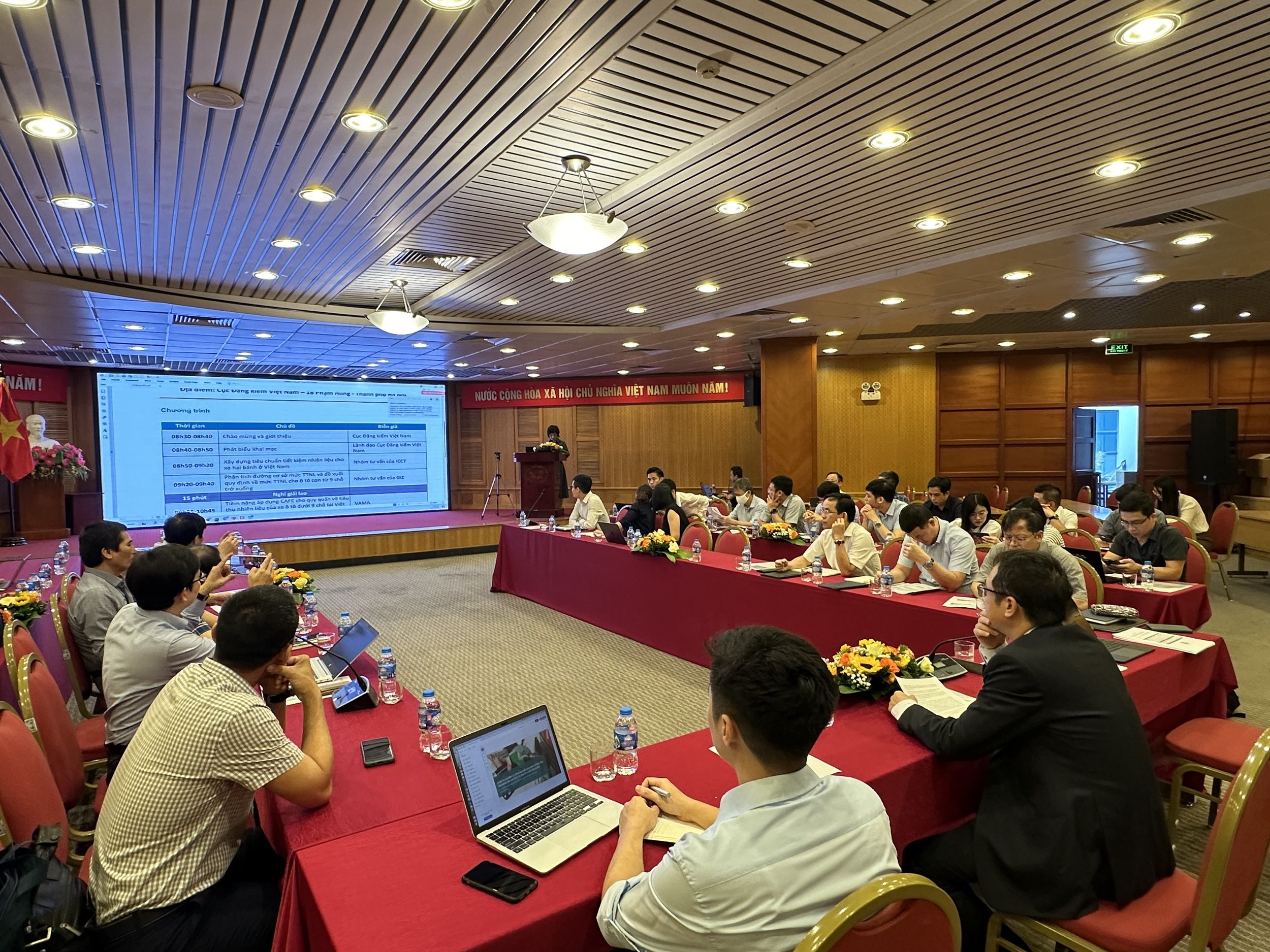
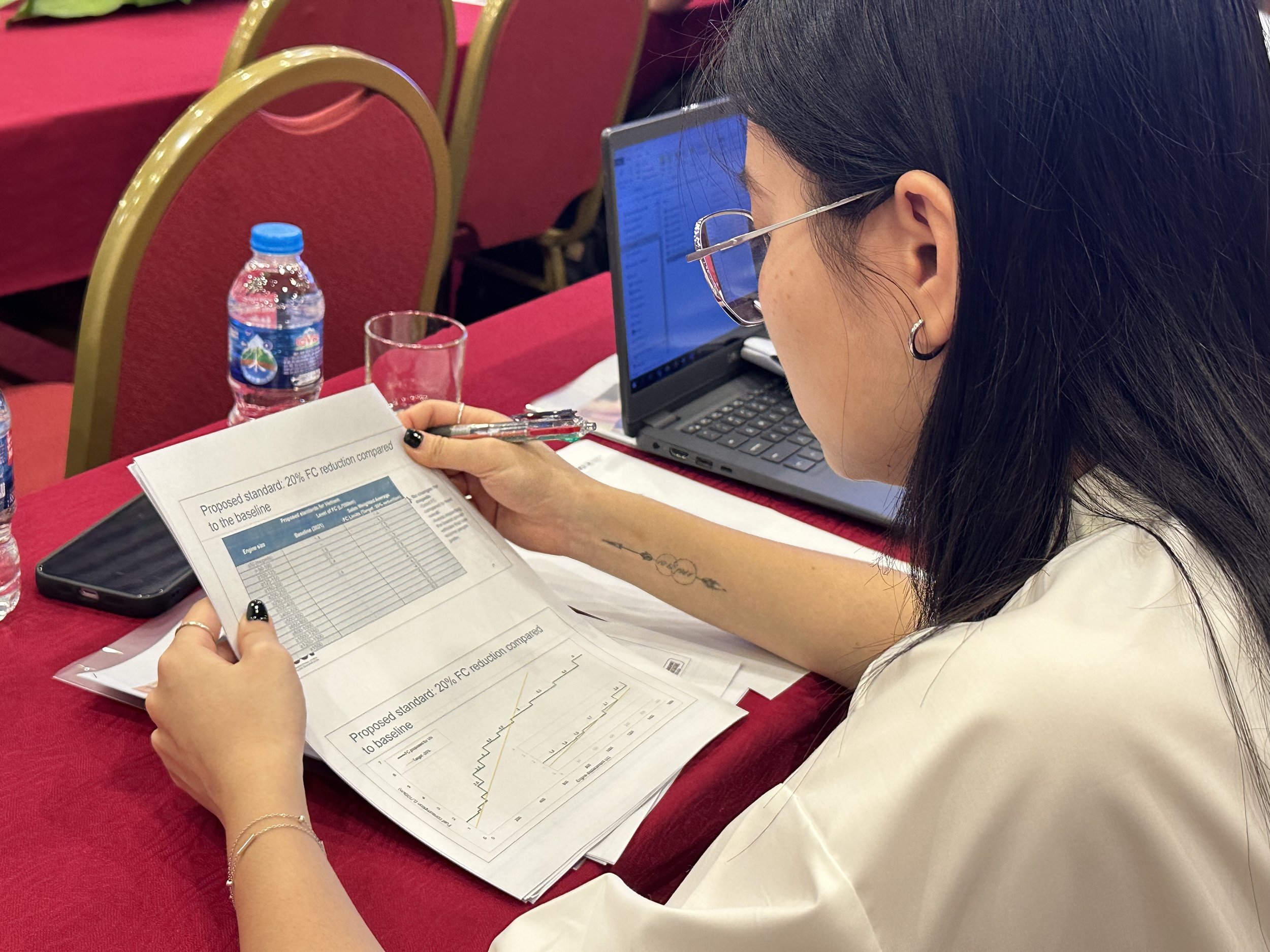
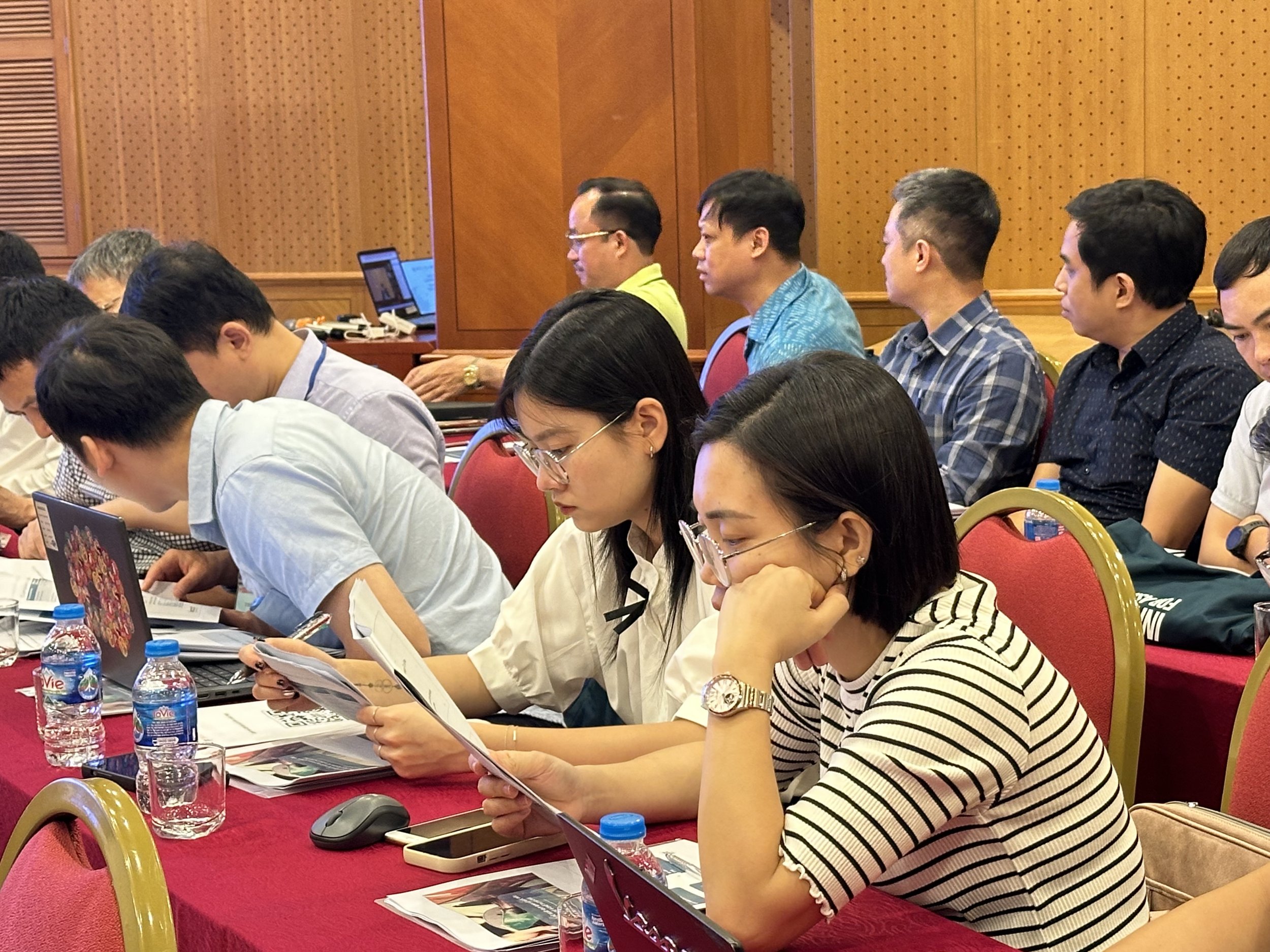
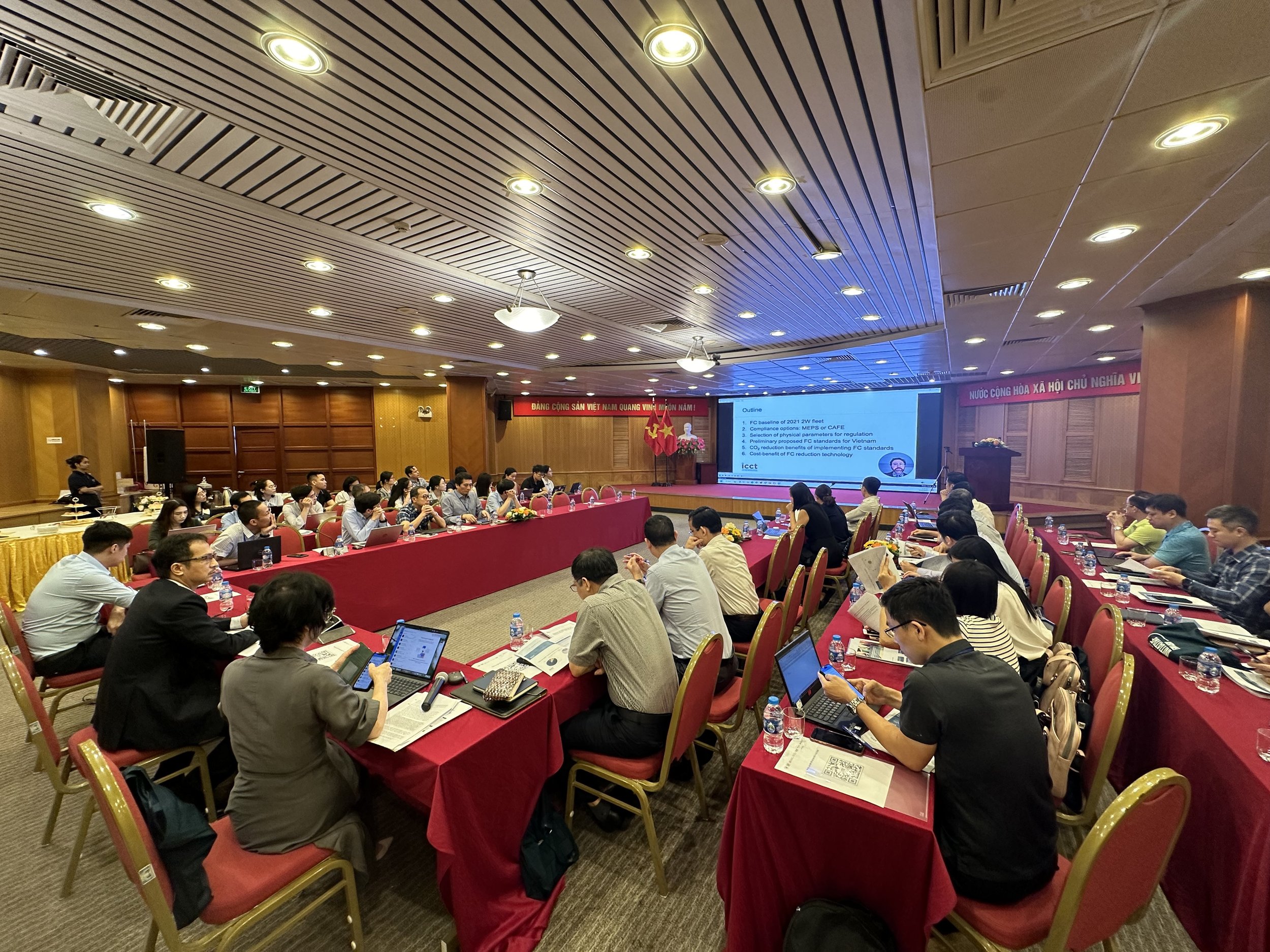
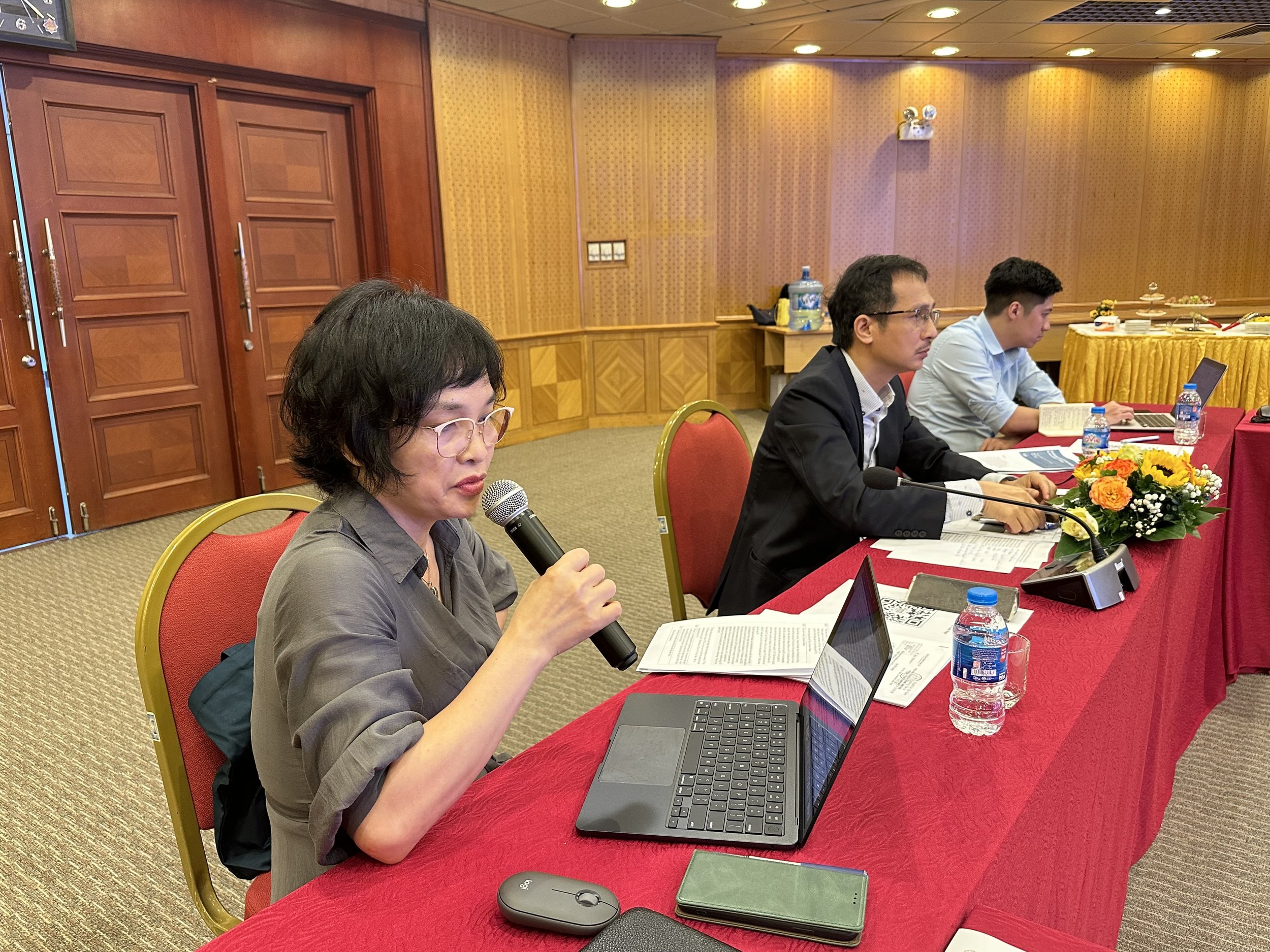
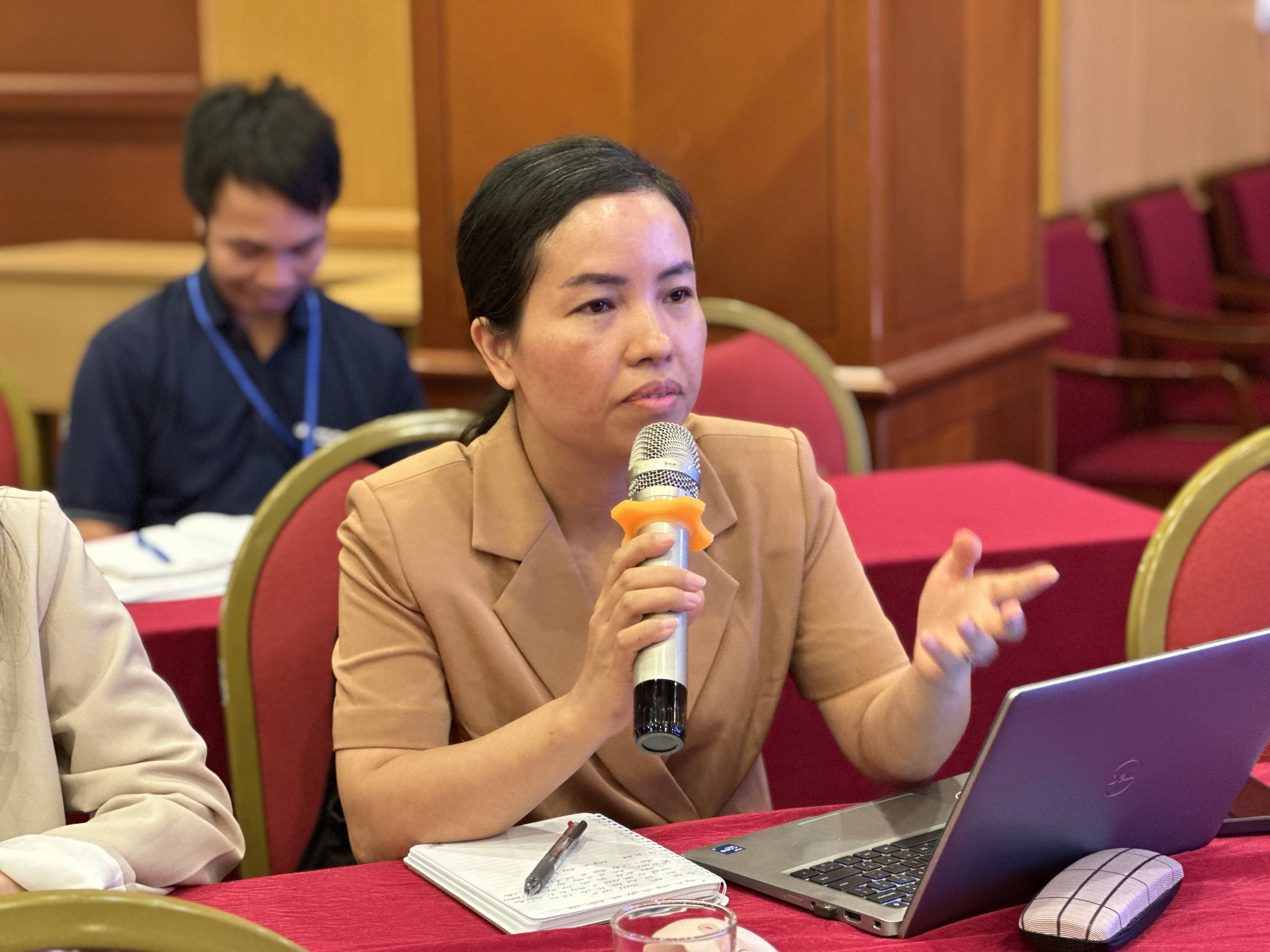
Hanoi, 21st May 2024—Viet Nam Register, Ministry of Transport with the Deutsche Gesellschaft für Internationale Zusammenarbeit (GIZ) GmbH and International Council on Clean Transportation (ICCT) in collaboration organised a technical meeting on “Development of national regulation on fuel economy of passenger cars under 9 seats, motorcycles and mopeds”. The event brought together policymakers from Vietnamese Government authorities, industry stakeholders, and representatives from leading automotive organisations, and associations to address fuel economy regulation for passenger cars with nine seats and below, motorcycles, and mopeds. This meeting underscored the nation’s dedication to advancing sustainable transport and achieving net zero emissions.
The objective of the meeting was to provide in-depth analysis and forward-looking proposals aimed at setting tightening fuel economy regulations, as a part of accelerating the country’s net-zero emission goal by 2050. Topics ranged from the technical challenges of meeting proposed standards to the economic implications for manufacturers and consumers, in detail as follows:
Analysis of Baseline Fuel Economy and Proposal of Standards for Motorbikes and Mopeds:
Expert from ICCT presented a comprehensive study on the current fuel economy baseline for motorbikes and mopeds. The study highlighted significant variations in fuel economy among different models and proposed ambitious yet achievable standards to improve these vehicles' average fuel economy. The proposals are expected to drive technological advancements and encourage manufacturers to produce more fuel-efficient two-wheelers.
Analysis of Baseline Energy Efficiency Levels and Proposal of Standards for Passenger Cars:
The analysis from GIZ provided a detailed overview of the current energy efficiency levels within this category. Proposed standards were based on a thorough assessment of the existing fleet's performance, emphasising the need for regulatory measures to encourage automakers to prioritise fuel-efficient technologies and designs.
Current Status and Potential for Applying Corporate Average Fuel Economy (CAFE) Model:
From a business perspective, the Vietnam Automobile Manufacturers Association (VAMA) examined the feasibility and benefits of implementing the Corporate Average Fuel Economy (CAFE) model for fuel economy standards. The discussion centered on how this model could help manufacturers flexibly meet new regulatory requirements while also aligning with broader efforts to achieve the net-zero emissions goal. The potential for CAFE to drive industry-wide improvements in fuel economy was underscored, with participants exploring its applicability nationally.
In conclusion, the meeting underscored the critical need for robust fuel economy regulations to promote energy efficiency and mitigate environmental impacts.
“The meeting underscored the critical need for robust fuel economy regulations as a means of promoting energy efficiency and mitigating environmental impacts.”
For motorbikes and mopeds, it is agreed that the CAFE/CAFC method (Corporate Average Fuel Efficiency) based on engine capacity (cc) should be used while the CAFE/CAFC method based on vehicle mass (kg) for passenger cars with 9 seats and below. Further research is needed on management and enforcement tools when regulations on energy deposit levels are implemented (e.g., banking, credit and exchange mechanisms).
The outcomes of this meeting will form the basis for developing new regulatory frameworks, which will be subject to further consultation and refinement before being finalised and implemented. Stakeholders are optimistic that these efforts will pave the way for significant advancements in fuel economy, benefiting both the environment and the economy.
This high-level technical meeting signifies a momentous step in Viet Nam's efforts to confront climate change and transition towards a greener transport sector. The strategies and insights discussed are expected to have a significant impact on national policy and contribute to the broader global movement towards a more sustainable future, emphasizing the importance of international cooperation and innovative approaches in the battle against greenhouse gas emissions.
Author: Hang Nguyen



